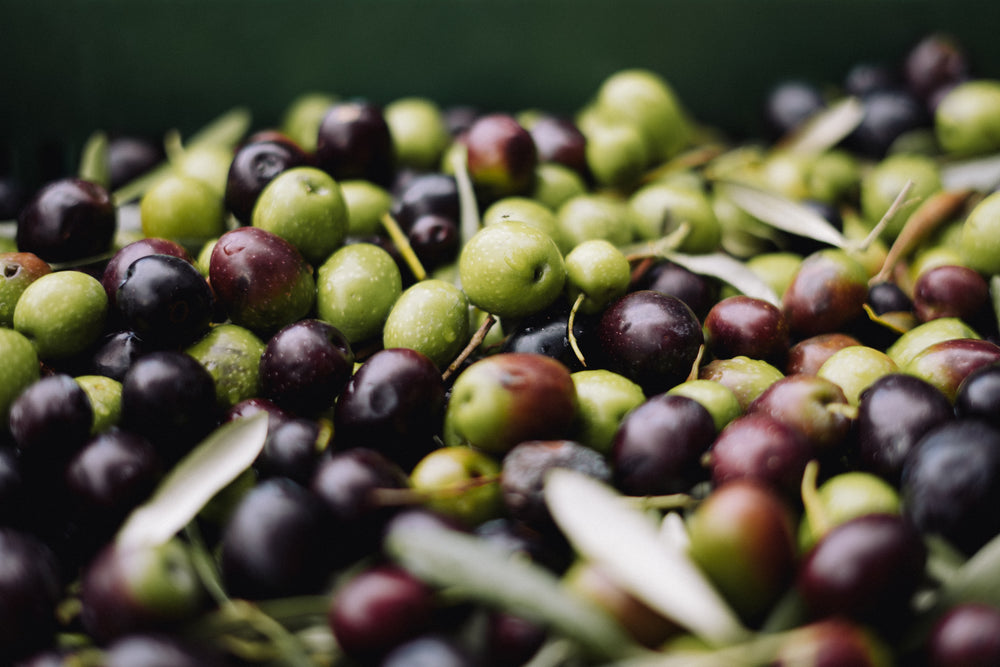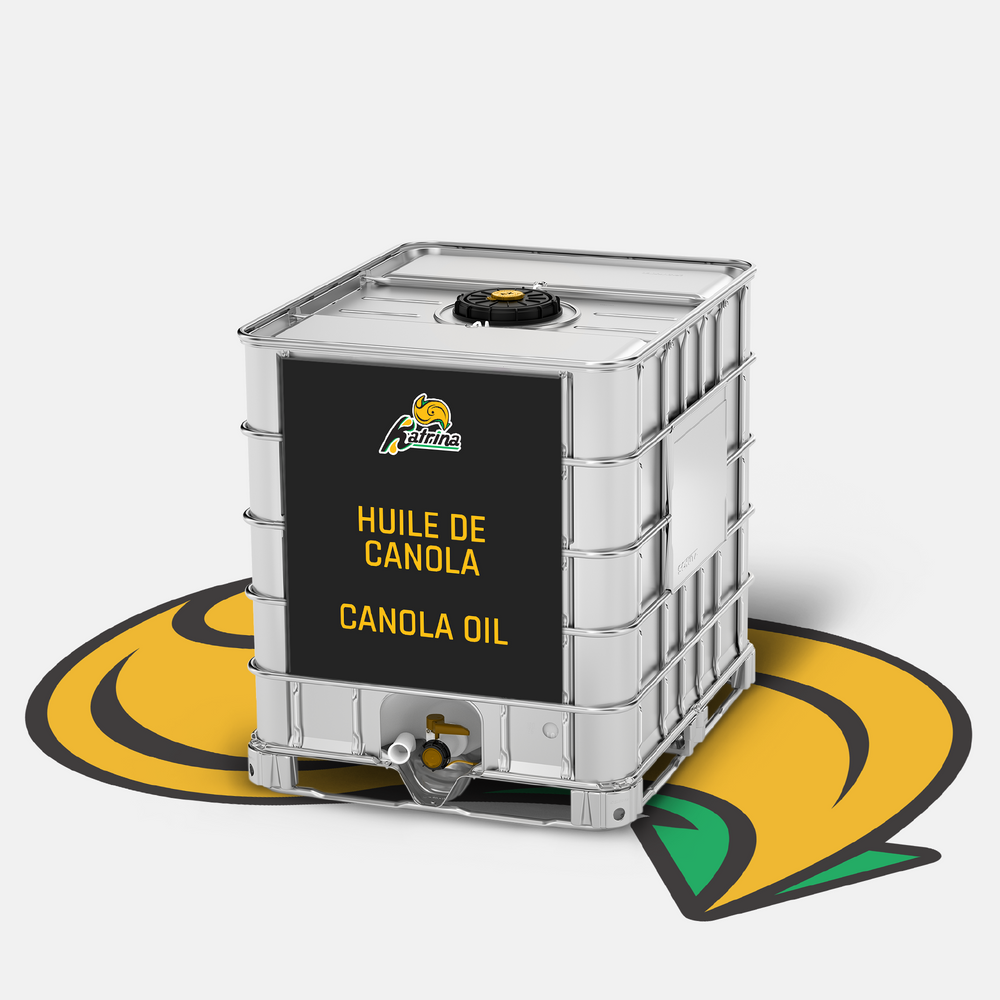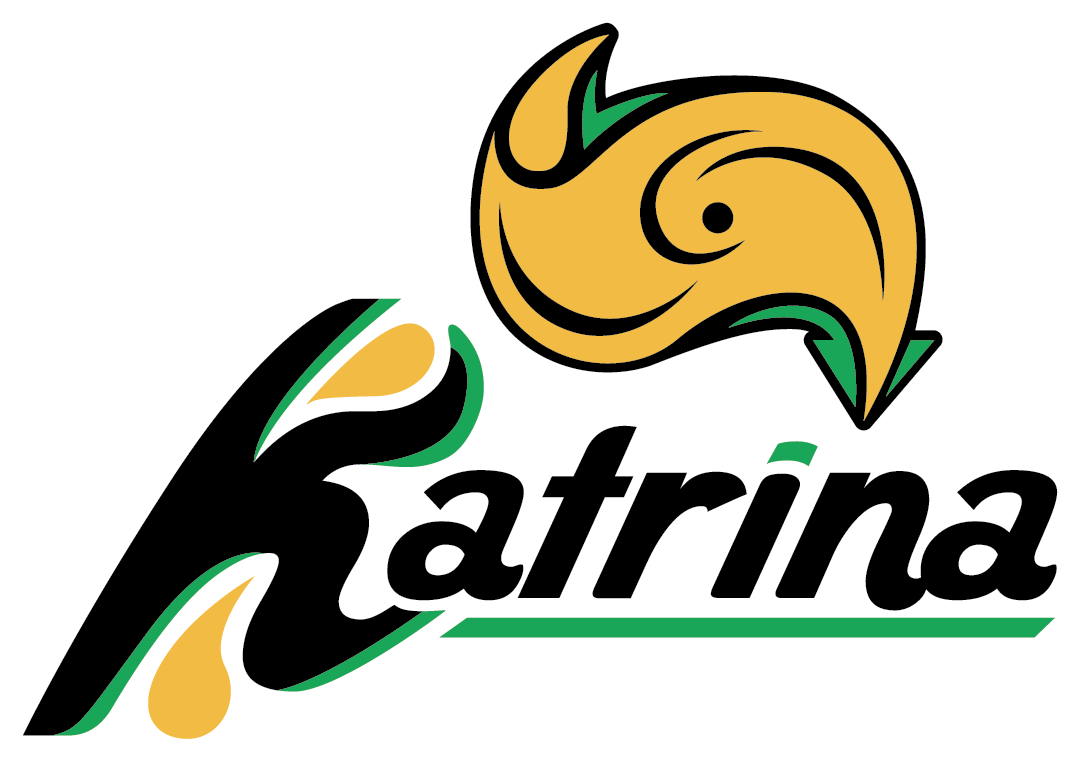Canola Oil Alternatives for Cooking, Baking, and Other Uses
Canola oil is widely used in both home kitchens and commercial food preparation because it's exceptionally versatile. Its high smoke point, mild flavour, and affordable price make it an easy choice for frying, sautéing, baking, and more.
However, there may come a time when you need a substitute. Whether you're switching for dietary preferences, flavour experimentation, or supply issues, knowing what to use instead of canola oil in baking, frying, or dressings is key to achieving your desired culinary results.
Swapping in another oil isn't about simply pouring in whatever’s on hand. Different oils bring distinct textures, flavours, and behaviours under heat. Some substitutions work beautifully in one context and fall flat in another.
Here’s a simple framework:
| Cooking Need: | Recommended Oils: |
| High-heat frying | Avocado, Sunflower, Peanut |
| Sweet baking | Light Olive, Coconut (refined), Butter |
| Savoury baking | Sunflower, EVOO, Lard |
| Dressings & raw use | EVOO, Walnut, Avocado, Sesame (toasted) |
| Health-focused cooking | Avocado, EVOO, Coconut (moderate heat) |
| Large-batch, low-cost | Sunflower, Vegetable, Grapeseed |
This guide breaks down which oils to use depending on how you're cooking, be it frying, baking, or dressing, and why those differences matter.
Canola Oil at a Glance
Canola oil is a neutral, plant-based oil pressed from the seeds of the canola plant, a cultivar of rapeseed. Its most practical trait in the kitchen is its impressive smoke point, typically around 400°F - 475°F.
This makes it highly stable during high-heat cooking, which is why it's so frequently chosen for frying and searing. Additionally, its colourless and nearly flavourless profile allows other ingredients to truly shine, a particular advantage in delicate baked goods or vibrant salad dressings.
From a nutritional standpoint, canola oil is commendably low in saturated fat and contains beneficial monounsaturated fats and omega-3s. While some health-conscious consumers might have concerns due to its refining process or GMO status, its neutral profile and flexibility continue to make it a popular choice. For high-quality, reliable options, explore Distributions Katrina's bulk canola oil.

Best Canola Oil Alternatives for Frying, Searing, and High-Heat Cooking
 Frying demands an oil that can withstand intense heat without breaking down or developing undesirable off-flavours.
Frying demands an oil that can withstand intense heat without breaking down or developing undesirable off-flavours.
Canola oil excels here due to its high smoke point and neutral presence. If you're seeking to replace it for frying, thermal stability is your absolute top priority. Flavour, while important, comes second, especially if the oil can positively enhance the dish.
Here are several oils with high smoke point for frying that stand up robustly to high heat and perform reliably in deep-frying, pan-frying, or high-heat sautéing:
Sunflower Oil
Sunflower oil boasts a smoke point around 450∘F (232∘C) and a light, clean flavour that won’t compete with your seasonings or marinades. It’s widely available and incredibly cost-effective, particularly when purchased in bulk. Nutritionally, high-oleic sunflower oil can help reduce the risk of heart disease by lowering LDL ("bad") cholesterol.
For foodservice kitchens or home cooks working with larger volumes, sunflower oil is a practical and efficient alternative to canola, ensuring consistent browning and texture.
Soybean Oil
Much like sunflower oil, soybean oil also offers a high smoke point of approximately 450°F (232°C) and a beautifully neutral taste. It's a fantastic choice for general-purpose frying and sautéing, especially when you need an oil that will not interfere with the delicate flavours of your ingredients.
You can also source organic soybean oil in bulk from Distributions Katrina for added quality assurance and peace of mind. Studies have shown that replacing saturated fats with soybean oil can help lower blood cholesterol levels, contributing to a reduced risk of coronary heart disease.
Peanut Oil
Peanut oil is a preferred choice for deep-frying in many commercial kitchens due to its robust performance. It brings a mild, slightly nutty taste and a high smoke point of 450∘F (232∘C). For dishes that benefit from a bit more richness, like perfectly fried chicken, crispy pakoras, or battered fish, it adds character without overwhelming the food.
This is often recognized as the best oil to use instead of canola for deep frying in professional settings, however it should be avoided in environments where nut allergies are a concern.
In frying applications, the wrong oil can quickly burn, turn acrid, or negatively impact texture. Consider cost, flavour, and how the oil behaves once it cools or sits on fried food. Some oils reheat exceptionally well; others might leave an undesirable oily residue. For home cooks, it might come down to taste and reliable availability.
Best Canola Oil Alternatives for Baking (Sweet and Savoury)

Canola oil excels in baking because its neutral profile allows it to disappear into the background, providing essential moisture and tenderness without imparting any discernible flavour. Replacing it in cakes, muffins, breads, or pastry dough calls for precision, both in achieving the right texture and maintaining the desired taste.
The ideal swap depends on whether you’re crafting something sweet or something savoury, making baking with oil substitutes a truly nuanced task.
Sweet Baking (Cakes, Muffins, Brownies, Loaves)
Sweet baked goods critically need fat to maintain moisture and tenderness. However, too much flavour from the oil can unfortunately clash with the delicate profiles of sugar, vanilla, fruit, or chocolate.
Refined Coconut Oil
When refined, its taste is mild enough to allow other ingredients to take the lead. It naturally solidifies at room temperature, which can particularly benefit recipes that require body, like dense cookies or rich pound cakes.
On the other hand, unrefined coconut oil has a more pronounced flavour and works better in tropical-inspired recipes.
Applesauce
Applesauce, while not an oil, can reduce fat content and add natural sweetness. While it doesn’t behave exactly like oil, especially in recipes that heavily rely on fat for structure, it performs commendably in dense cakes, muffins, or quick breads.
For best results, use it in moderation or combine it with another fat source.
Melted Butter
Melted butter significantly increases richness and improves the mouthfeel of baked goods. It also browns differently than oil, leading to delightfully crisp edges or golden tops in baked items.
The trade-off is a potentially denser texture, so this swap is more suited to recipes like rich brownies or comforting spice cakes rather than light chiffon or delicate sponge layers.
Savoury Baking (Bread, Biscuits, Crusts, Flatbreads)
Savoury baked goods demand a fat that enhances flakiness or chew without introducing unwanted sweetness. Oil also critically impacts how the dough comes together and how it behaves during the baking process.
Sunflower Oil
Sunflower oil is a practical choice when a recipe needs neutrality. It’s affordable, doesn’t cloud the flavour of herbs or cheeses, and integrates smoothly into dough.
It performs exceptionally well in classic sandwich loaves, aromatic garlic rolls, and flaky quiche crusts.
Extra Virgin Olive Oil
This oil is a cornerstone in savoury Mediterranean baking, think authentic focaccia, hearty olive bread, or aromatic herbed flatbreads. Organic Extra Virgin Olive Oil carries a bold, distinctive flavour and pairs beautifully with tomato, rosemary, or garlic. Because it directly impacts the flavour, it should always be chosen to complement the rest of the ingredient profile.
This perfectly highlights the important considerations when choosing between canola oil vs olive oil. Extra virgin olive oil is also rich in powerful antioxidants like polyphenols, which contribute to heart health and can reduce inflammation.
Animal Fats (Lard, Duck Fat)
For chefs and home cooks who operate outside of vegan or vegetarian restrictions, rendered fats like lard or duck fat produce an unmatched depth of flavour and texture in pie crusts, cornbread, and biscuits.
They deliver a wonderfully crisp exterior and rich texture. These should ideally be used cold and handled minimally in doughs to maintain maximum flakiness. These are also often excellent paleo-friendly canola oil alternatives.
Baking Substitution Chart
| Original - 1 cup canola oil | |
| Substitution | Ratio |
| Olive oil | 1:1 ratio |
| Melted butter | 3/4 cup |
| Refined coconut oil | 1:1 ratio (melted) |
| Applesauce | 1/2 - 3/4 cup (reduce liquid elsewhere) |
Every oil brings its own unique chemistry. Some bind ingredients differently, others create a denser crumb or a more elastic dough. Successful swaps, especially with the high-quality oils, always account for both the specific baking method and the desired flavour goal.
Best Canola Oil Alternatives for Salad Dressings, Dips, and Cold Use
 Cold dishes, unlike cooked ones, rely heavily on the inherent flavour of the oil, not just its texture. When used in a dressing or a dip, the oil’s profile truly stands out. The wrong substitution can easily throw off the delicate balance of acidity, sweetness, and spice.
Cold dishes, unlike cooked ones, rely heavily on the inherent flavour of the oil, not just its texture. When used in a dressing or a dip, the oil’s profile truly stands out. The wrong substitution can easily throw off the delicate balance of acidity, sweetness, and spice.
Oils used in cold applications require balance. Too much flavour can overpower a dish, while too little can make a dressing bland. Fatty oils with distinct profiles pair well with acidic components like lemon juice, vinegar, or mustard.
“For salads, the right olive oil has a fresh and clean flavor, bringing brightness and depth such that you don’t need much else,” says Chef Maria Lawton, author of Azorean Cooking: From My Family Table to Yours.
Choosing the right replacement depends entirely on how bold or subtle you want the finished dish to be.
Extra Virgin Olive Oil
Extra virgin olive oil brings a distinct and complex taste, with notes ranging from grassy and peppery to fruity, depending on the region and olive variety. It emulsifies beautifully with vinegar or citrus, creating a smooth and luscious base for vinaigrettes.
Use it liberally in Mediterranean salads, classic caprese, or savoury chickpea dips where its robust character adds significant depth. For the purest expression of this oil, consider organic extra virgin olive oil in bulk.
As famous chef Emeril Lagasse put it best, “You gotta have good olive oil. You should have a cooking olive oil and you should have a finishing olive oil, like an extra-virgin olive oil.”
Avocado Oil
With a creamy texture and clean, mild flavour, avocado oil blends well into dressings, aiolis, or anything benefiting from a buttery finish. Rich in unsaturated fats, it remains liquid when chilled, ensuring stable emulsions.
Walnut Oil
Walnut oil imparts a soft nuttiness, particularly good in fall salads with apples, blue cheese, or roasted squash. It's delicate and breaks down under heat, so it should only be used for raw sauces and drizzles.
Toasted Sesame Oil
Toasted sesame oil is highly aromatic; a few drops can transform a dish's profile. It's excellent in Asian-inspired slaws, noodle bowls, or dumpling dipping sauces. Use sparingly for strong character, as it doesn't easily blend with creamy bases.
Best Canola Oil Alternatives for Health-Conscious Cooking

When making oil substitutions for nutritional reasons, consider smoke point, fat composition, and heat behaviour across all applications. The healthiest choice varies depending on whether you're cooking, dressing, or baking.
Avocado Oil
Avocado oil is suitable for high-heat cooking and boasts a favourable nutritional profile, including monounsaturated fats and a high smoke point (520∘F / 271∘C). This makes it ideal for searing, roasting, and even deep-frying without breaking down. Its neutral flavour also ensures it won't compete with other ingredients.
Extra Virgin Olive Oil
Olive oil contains antioxidants and compounds linked to heart health. It's best for low- to medium-heat cooking or cold use, with a smoke point ranging from 350∘F to 410∘F. Use it for sautéing, drizzling, or dips. Savoury baked goods can also benefit from its depth.
Coconut Oil
Virgin coconut oil, with its distinct saturated fats, works well in recipes calling for medium heat. Its slightly sweet, tropical flavour is best in stir-fries, curries, or baked goods with cinnamon or banana. Refined coconut oil offers a more neutral option, adding body and structure to baked items.
Flaxseed Oil (Cold Use Only)
Flaxseed oil is rich in omega-3 fatty acids but should never be heated. Use it in smoothies, salad dressings, or drizzled over cooked vegetables. Its grassy, earthy flavour can be potent, so it's best used in small amounts or blended with milder oils.
Algae Oil
Algae oil is gaining traction as a plant-based source of DHA and EPA. With a clean flavour and balanced fat content, it's suitable for raw applications like vinaigrettes or dips. Though more expensive, it aligns with plant-forward diets focused on reducing saturated fat and increasing polyunsaturated intake.
Cooking with health in mind doesn't require sacrificing texture or flavour. The key is matching nutritional goals with the oil's performance in various cooking contexts.
Choosing Oils by Cuisine and Flavour Profile
Oil not only prevents sticking and adds moisture but also carries and contributes flavour, integral to different culinary traditions. Matching the oil to the cuisine ensures a cohesive and intentional final dish.
Mediterranean Cooking
Extra virgin olive oil is central to Mediterranean cuisine, naturally pairing with tomatoes, garlic, herbs, and lemon. It's ideal for dips like hummus, roasted vegetables, grilled seafood, and savoury baked goods like focaccia.
South and East Asian Recipes
Toasted sesame oil enriches noodle bowls and dipping sauces. For higher heat applications like stir-fries, refined coconut oil or peanut oil provide both flavour and performance, enhancing aromatics like ginger and soy sauce.
French or Classic European Techniques
Butter and animal fats are prominent in traditional European recipes. Duck fat is excellent for roasted potatoes and savoury pastries. Sunflower oil, with its mild taste, performs well in pâte brisée, sponge cakes, or sautéed vegetables.
Misconceptions About Canola Oil Substitutes
Swapping oils can seem simple, but common misconceptions often lead to subpar results, affecting texture, taste, and even safety at high temperatures. Understanding these pitfalls helps avoid wasted ingredients and inconsistent outcomes.
“Vegetable Oil Is the Same as Olive Oil”
Most "vegetable oil" blends are refined for neutral flavour and high heat tolerance. Olive oil, especially extra virgin, has bold flavours that significantly alter a dish's profile.
Substituting indiscriminately can lead to grassy-tasting baked goods or quickly burnt fried foods. For neutrality, olive oil is often unsuitable, particularly in sweet or high-heat applications.
“Any Neutral Oil Works for Everything”
Neutral flavour does not guarantee universal function. Smoke point, fat content, and emulsification properties vary.
Grapeseed oil may work in a salad dressing but won't provide the same structure in baking as sunflower oil would for deep-frying. Each neutral oil has an optimal use range; disregarding this can compromise flavour or texture.
“Applesauce Works Anywhere in Baking”
While applesauce reduces fat and adds moisture, it doesn't replace oil's structural role. In recipes relying on fat for crumb integrity, applesauce can lead to dense, rubbery textures.
It lacks the lubricating quality that makes baked goods light. Applesauce is best for moisture, but for aeration and mouthfeel, it's better combined with another fat.
“All Olive Oils Are the Same”
Olive oils vary widely, from strong, peppery extra virgins to filtered light varieties. Blind substitution can lead to flavour clashes or smoke point issues. Light olive oil is better for baking and mild sautéing. Extra virgin adds complexity but burns faster and demands precise use. Knowing the distinction prevents culinary mishaps.
“High Smoke Point Means High Quality”
A high smoke point indicates heat tolerance, not necessarily health or flavour. Refined oils often have higher smoke points but fewer antioxidants.
Cold-pressed or unrefined oils offer nutritional value and unique flavour but are more heat-sensitive. The right oil choice balances heat level and cooking method, rather than solely chasing the highest smoke point.
Cost, Sourcing, and Choosing the Right Oil for Volume Use
 Price heavily influences oil choices, especially in professional kitchens and for bulk purchases. A premium oil might perform excellently but be economically unviable for large-scale production.
Price heavily influences oil choices, especially in professional kitchens and for bulk purchases. A premium oil might perform excellently but be economically unviable for large-scale production.
Conversely, lower cost options can compromise flavour, smoke behaviour, or shelf stability. The key is balancing cost per litre, storage life, and performance under repeated use.
Price and Performance Aren’t Always Linked
Higher prices don't guarantee superior performance for every task. For deep-frying, many kitchens opt for moderately priced oils that withstand multiple uses without developing off-notes.
Sunflower and soybean oil lead in this category for their neutrality, shelf stability, and availability in large formats. Organic soybean oil bulk is also an option. Premium oils like avocado or extra virgin olive are often reserved for finishing or small-batch cooking where their distinct flavours can shine.
Shelf Life and Storage Factors
Cooking oils are highly sensitive to heat, light, and air. When stored improperly, especially in clear containers or near hot equipment, oils oxidize faster, developing off-flavours and losing nutritional value.
Unrefined oils like walnut, flaxseed, or extra virgin olive oil degrade more quickly than refined oils and should be stored in a cool, dark place.
While refined oils like canola or vegetable can last up to a year if stored properly, cold-pressed or specialty oils often have a shelf life of 3–6 months once opened. In foodservice environments, rotation is key.
Oil Selection by Task Size
Most home kitchens don’t need more than two or three oils on hand. A neutral, high-heat oil (like refined sunflower or grapeseed) covers frying and sautéing, while something richer (like extra virgin olive oil) works for finishing, dressings, or savoury baking.
Restaurants operate with different priorities. Fry stations need oil that can perform reliably across many uses, while prep teams might need precision for recipes where texture matters. Grapeseed oil is frequently used in baking and pastry because of its neutral flavour and smooth mouthfeel.
Choosing the right oil begins with its use case. Some are flexible and work across categories. Others are designed to enhance a specific type of cooking, whether that's a butter-rich tart crust or a high-volume fryer that runs eight hours a day.
Matching Oil to Task
There's no single universal substitute for canola oil; each oil performs uniquely across different techniques. What works for roasting may fail in cake batter, and what enhances a vinaigrette might break down in a deep fryer. Matching the oil to the task involves evaluating its heat behaviour, interaction with other ingredients, and overall contribution to the dish.
For texture in a sponge cake, neutral oils like refined sunflower or grapeseed deliver without leaving a trace. For finishing a grilled vegetable dish, a first-press olive oil or toasted sesame oil adds dimension. In foodservice, where shelf life and cost are crucial, volume performance outweighs subtle flavour notes.
For home cooks, stocking two or three complementary oils can replace canola without sacrificing convenience or outcome. For commercial buyers, switching from canola starts with analyzing workflow: how the oil is used, replacement frequency, and whether the dish requires a prominent or invisible oil presence.
Experimenting with substitutions offers new textures and flavours, but precision is key. Always consider ratios, fat content, and temperature. Whether driven by flavour, diet, or supply, choosing the right alternative sets the stage for a successful dish.
To explore the extensive oil options available, including organic canola, organic soybean, organic extra virgin olive, sunflower, soybean, and olive oils, Distributions Katrina offers high-quality cooking oils expertly tailored for restaurants, bakeries, and food manufacturers across Canada and USA. You can get a quote or place an order here to elevate your culinary offerings.










